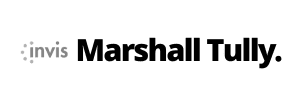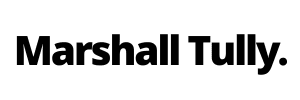Read Time: 5 Minutes
3 Ways Entrepreneurs Can Secure A Mortgage
In this article, I’ll dive into three different methods we use to determine an entrepreneurs income for the purpose of qualifying for a mortgage.
Learning these strategies is essential for entrepreneurs looking to buy a home because it helps them overcome obstacles and increase their chances of getting a mortgage. By implementing what you learn here, readers will feel more confident applying for a mortgage, making it easier to achieve home ownership. Understanding these strategies is timely, as it will provide valuable insights for tax preparation for 2023, which could impact your mortgage qualification for the next 3 years.
Now, let’s dive in.
The Standard Mortgage for Entrepreneurs
Understanding standard qualification for entrepreneurs is important because it determines ability to get financing for a home. Meeting this criteria is how you get the best rates and lowest down payments.
The standard is to take your last two years of personal tax returns (T1 Generals), and look at what you are reporting as your Net Income from self-employed sources. Net is your after expense income, which is what you pay tax on. Once we have the total for the last two years, we then look at the average. However, if the most recent years income is lowest, income is trending down, then we just use the most recent year.
Now, because Entrepreneurs can write-off things an employee can’t (phone, car, business use-of-home, etc…), lenders will allow us to increase the income above by 15% to offset those factors. This is how we land on your useable income for a mortgage application.
Now, even though over the two years they both made the same amount of money, Jose actually has $14,375 in additional annual income he can use to qualify for a mortgage, giving him a much better result.
So you can see how your tax strategy for the last two years will impact you today, and how you file your taxes for 2023 could really impact your ability to qualify for a mortgage through June 2026, when you get your 2025 taxes back.
Incorporated? Get A Boost
Many entrepreneurs operate their business as a sole proprietorship or partnership, but for those that have taken the extra step and operate as a corporation there is a little bonus we can use to top up your income on a mortgage application.
If you are operating as a corporation, you are likely paying yourself a salary, by way of T4, or drawing a dividend from the company. These would be reported on your personal tax return, and we would use the method above to determine your base personal income. However, when looking at this boost option we’ll want to leave out the 15% bump up noted above.
In addition to the base personal income, we’ll also get copies of your corporate financial statements for the last two years. From these we’ll look at the Net Income After Taxes (NIAT) less Dividends Paid, and then take a two year average. This number must be positive in both years, and if it’s trending down, then we take the most recent year. From here, we can use as much of 60% of that as personal income on your mortgage application.
Based on the scenarios above, even though over the two years they both made the same amount of money, Emily actually has $48,750 in additional annual income she can use to qualify for a mortgage, giving her a much better result.
So you can see how this program, coupled with your tax strategy for the last two years will impact you today. How you decide to file your taxes for 2023 will impact your ability to qualify for a mortgage until about June 2026.
Business Bank Statement Mortgage
The business bank statement option, works well for people who don’t report a high personal income, write-off as much as they can, or are newly self employed (within the last 12 – 36 months).
With this option, we don’t look at your personal tax returns, except to make sure you don’t owe anything to the CRA. Instead, lenders are going to ask for the most recent 12 months of business bank statements, and some invoices. We will total up all the income based deposits into the account, and get clarification on all of the consistent withdrawals. We are looking at how much is flowing into your business, and then what are some of your standard operating expenses. This will give us your businesses perceived profit, and this profit is what we can use as your personal income.
These bank statements could be for a sole proprietorship, partnership, or corporation, and you don’t have to be claiming and paying income tax on this income either. Using this method not only leaves more income in your hands by reducing your tax payable, but also allows us to only look at the most recent year, and to show a higher income then you would likely otherwise report on your taxes.
A couple pointers before our example… This type of mortgage is done through Alternative Lenders, and although rate will be similar to the above options, you will have a fee payable at closing of 2% of the mortgage amount. These lenders are much more flexible on things like credit, rental income, and other factors, but do require 20% down payment or more in some locations.
Based on the scenarios above, traditionally Brad would have $194,125 less annual income he can use to qualify for a mortgage, giving him a much better result by using the bank statement program.
You can see how this program could really boost your budget when looking to buy a home!
I hope you now understand the different ways we can approach a mortgage for an Entrepreneur.
The best of luck to you and your business ventures in 2024, may it be filed with rewarding work and special downtime with friends and family.
Overview
Subscribe to begin.
Join 7.5k+ subscribers and get tips, strategies and market updates every other Thursday morning.










